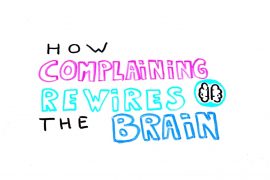Do you prefer taking a long summer vacation or planning several shorter trips during the year? While some argue that a long break away from work and your daily routine is the best way to relax, this may not be the best choice with regards to your happiness.
Jeroen Nawijn from Erasmus University Rotterdam and NHTV Breda University of Applied Sciences studied the influence of vacation on our happiness. The research team tried to find answers to the following questions: “Are vacationers happier than non-vacationers?”, “Does a trip boost our happiness?”, “If vacation influences happiness, how long does the effect last?” and “How long should a vacation be?”
How Vacations Affect Your Happiness
For this, they studied 1530 Dutch adults. The researchers found that those planning a vacation were HAPPIER than the ones not going away. They concluded that in the weeks PRIOR to the vacations, moods vastly improved. Some noticed a boost in happiness as early as 8 weeks before the start of their time off. They suggest that this may be due to their ANTICIPATION of the break. As described in How To Rewire Your Brain For Happiness And Success, the anticipation of positive events elevates your dopamine levels.
Following a trip, there was very little difference in happiness between vacationers and non-vacationers. They did find that the absence of stress during the time off positively impacted the post-vacation mood. The ones who reported a happy post-vacation feeling the longest rated their vacation as ‘extremely relaxing’. These participants showed a small increase in happiness which was noticeable during the first two weeks after their return. The effect wore off completely after eight weeks.
How Long And How Often Should You Take A Vacation?
They say “Anticipation is half the fun” and this study supports this saying. The researchers did not find a relationship between the length of the vacation and overall happiness. Jeroen Nawijn suggests that people are likely to experience more happiness from two or more short breaks during the year, than having a single longer vacation once a year.
Why Doesn’t Vacation Increase Happiness In The Long Run?
One reason vacations do not boost long-term happiness may have to do with the stress of returning to work. The researchers explain that it is not surprising that trips do not have a prolonged effect on happiness: the majority of the vacationers return to work or their daily routines straight after their vacations.
Some participants experienced the holiday itself as stressful. According to Jeroen Nawijn: “In comments from people, the thing they mentioned most referred to disagreements with a travel partner or being ill.”
When is your next vacation?
Liked this? Check Zillionist out on YouTube!
How Complaining Rewires The Brain: What You Think, You Become






